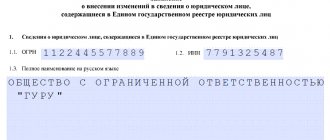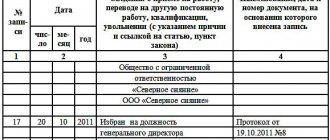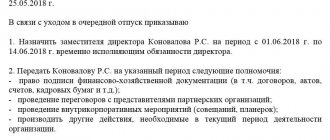How long is the CEO responsible after dismissal?
For administrative offenses and crimes and violations of varying degrees of severity, the law provides for different statutes of limitations:
- One year for an administrative offense and for causing material damage.
- Two years for minor crimes.
- Six and ten for medium and especially grave criminal offenses, respectively
- one year after the commission of administrative offenses;
- 1 year for claims for compensation for material damage;
- 2 years for minor violations of the Criminal Code of the Russian Federation;
- 6 years for crimes of medium gravity;
- up to 10 years for serious crimes.
Criminal liability
Read: Types of penalties for LLC
The Criminal Code provides for the responsibility of the manager in cases where he commits economic crimes or violates the rights of other citizens. Moreover, the punishment, depending on the severity of the offense, can be not only a fine, but also imprisonment. Directors can be prosecuted for the following illegal actions or inaction:
- For non-payment of taxes and contributions. Committed in the form of failure to submit tax reporting documents or distortion in them of information necessary for calculating the amount of payment. In accordance with Art. 199 of the Criminal Code in this case, the official faces a fine of up to 500 thousand rubles or up to 5 years of forced labor, or up to 6 years of imprisonment. Simultaneously with the last two penalties, the perpetrator may be deprived of the right to hold a leadership position for 3 years.
- For failure to fulfill the duties of a tax agent , i.e. failure to transfer personal income tax and contributions for its employees. In this case, the main condition for bringing to responsibility should be the personal interest of the manager, i.e. desire to benefit. Based on Art. 199.1 of the Criminal Code, a director for this offense may be given a fine of up to 300 thousand rubles or up to 2 years of forced labor or imprisonment with a simultaneous restriction of the right to occupy leadership positions for 3 years or without it.
Important! The perpetrator may be released from criminal prosecution under these 2 articles if he committed the offense for the first time and fully paid the debt, fines and penalties.
If crimes under Art. 199 and 199.1 of the Criminal Code are committed on an especially large scale, the fine increases to 500 thousand rubles, the term of forced labor is up to 5 years, and imprisonment is up to 6 years.
- For concealing funds when collecting arrears of taxes, fees and contributions . This could be making imaginary or fictitious transactions, opening shell companies, illegally cashing out various amounts, etc. According to Art. 199.2 of the Criminal Code, the fine for the head of an organization will be up to 500 thousand rubles, and in case of a particularly large amount of damage - up to 2 million rubles. Depending on the severity of the crime, instead of a fine, the perpetrator may be sentenced to up to 3 years in prison with or without deprivation of the right to be a leader.
- For non-payment of wages for more than 2 months, the director may be charged up to 500 thousand rubles or assigned up to 3 years of forced labor or imprisonment on the basis of Art. 145.1 CC. It is also possible to restrict the right to be a manager for 3 years. To be held accountable, it is necessary to prove the director’s personal selfish interest in withholding funds.
- For refusing to hire or dismissing a pregnant woman without a good reason , or a woman with a child under 3 years of age, the head of the organization will pay a fine of up to 200 thousand rubles or be sentenced to compulsory labor.
The statute of limitations in all cases is 3 years from the date of commission of the crime.
Thus, the position of the head of an enterprise involves not only the organization of its activities and management of business processes, but also an increased level of responsibility within the framework of civil law. However, in order to bring the company's top person to justice, it is necessary to prove his guilt.
Administrative responsibility
Occurs in the event of serious violations of official duties and powers and allows for exclusion from the possibility of working in the senior management of medium-sized and large enterprises and organizations.
The maximum period during which a negligent director can be subject to administrative punishment is one year from the moment the fact of abuse of power is established.
This punishment provides:
- inability to engage in business activities as a legal entity;
- serve on the board of directors (including executive directors);
- participation in foreign projects and foreign investments as a manager of any rank;
- prohibition on carrying out labor activities in executive bodies of state power.
Expert opinion
Mikhailov Vladislav Ivanovich
Lawyer with 6 years of experience. Specializes in family law. Knows everything about the law.
According to Article 3.11, before noting the termination of the employment contract with him, a corresponding entry about the imposition of an administrative penalty is made in the general director’s work book .
In some situations, this punishment threatens a general director dismissed with a similar wording with a complete ban on ever holding a position at this level (Article 392, part one, Labor Code of the Russian Federation).
Director's subsidiary liability without bankruptcy
The controlling person must understand under what conditions it will be possible to bring a director to subsidiary liability without bankruptcy:
- at any stage of bankruptcy proceedings;
- when the bankruptcy proceedings will end;
- in the event of termination of the legal process in circumstances where the lack of funds from the borrower does not make it possible to compensate for the costs of the procedure itself;
- when an application declaring the borrower bankrupt was returned to the authorized body.
Previously (until 2021), courts of general justice could bring a director to subsidiary liability without bankruptcy.
Criminal penalty
In addition, if the guilt of the general director is documented, criminal liability may arise for the harm and illegal actions caused by him (Article 165 of the Criminal Code of Russia).
The terms of criminal liability depend on a number of circumstances and the severity of the official crime committed and are determined within the framework of the Criminal Code of the Russian Federation. The minimum term of imprisonment is one year . Once the statute of limitations has passed, release from criminal punishment occurs.
If at least two years have passed since the dismissal of the general director from his position , and the crime is classified as a minor offense, according to Russian laws (Article 78 of the Criminal Code), criminal liability is not provided.
For moderate violations , six years must pass before the statute of limitations expires.
In situations where the former general director deliberately evades the judicial authorities and interferes with their work , the statute of limitations is temporarily suspended, and when it becomes clear that the investigation is being delayed, the criminal penalty is increased.
It should also be noted that the dismissal of the general director from the post of manager does not relieve him of financial responsibility and retains the state judicial authorities the right to materially recover from the former director the damage caused by him in full.
Author: Svetlana Valyunina chief accountant-consultant 1C-WiseAdvice
The head of a legal entity is responsible for everything that happens in the organization. Owners are usually not punished for current shortcomings in the work of the company, but in case of serious violations, claims may be brought against them.
What if the founder sold his business and the director quit? Let's consider under what conditions it is possible to hold former directors and owners of a company liable.
When to apply
An application against the general director or other head of a company or organization can be filed in court within three years from the moment the applicant learned about the grounds for subsidiary liability, but no later than three years from the date the debtor was declared bankrupt (or, depending on the circumstances, from the date termination of bankruptcy proceedings or return to the competent authority on a bankruptcy petition). You need to know this information if the former director is liable in bankruptcy.
The role of the general director in managing a business entity
The General Director is the sole executive body (clause 1 of Article 40 of the Federal Law No. 14 of 02/08/1998), acting in the interests of the headed business entity.
He is hired and fired by the founders (or the founder, if he is one) and is responsible for almost everything that happens in the LLC.
The entire working team is subordinate to the general director, and he himself is accountable to the founders who hired him.
Taking into account the provisions of paragraph 3 of Art. 40 Federal Law No. 14, the functions of the general director include:
- representing the interests of the LLC before other persons and government agencies without a power of attorney (but with the right to issue it to any other representative);
- transactions;
- resolving personnel issues and approving relevant documentation;
- exercise of other powers not related to other management bodies of the LLC.
If the general director is absent from the workplace, his functions are performed by a deputy (often this is a staff member of an LLC holding a leadership position).
In the process of fulfilling his duties, the manager must be guided by the provisions of the LLC Charter, his employment contract, as well as regulations at various levels.
Financial liability: grounds, characteristics
According to the Law “On LLC”, developed to regulate the activities of a limited liability company, the general director is the sole executive body of the company and, accordingly, has the right to act on its behalf and in its interests.
In accordance with the norms of civil law, the head of an LLC whose actions caused financial losses in the enterprise is obliged to compensate for the losses caused to him.
The main conditions for bringing the general director to financial responsibility are:
- presence of guilt;
Guilt is an integral structural component of the offense. Proof of its existence, as a rule, is the fact that the actions of the director performed during the performance of official duties were unreasonable and dishonest, while the latter clearly understood that such conduct of business was associated with certain risks and could lead to material losses.
- the presence of a connection between the actions of the manager and the adverse consequences in the form of losses.
In order to hold the head of an LLC accountable, it is necessary to prove that as a result of his decisions the company suffered damage. As a rule, documents related to the case (reporting documentation, agreements, contracts, etc.) are used as means of proof.
When considering issues related to holding the general director financially liable, one should take into account the fact that business activity itself is associated with risks, therefore financial losses are not always a consequence of unreasonable management. Some paragraphs of the plenary resolution “On some issues of compensation for losses” are devoted to detailing this aspect.
Moreover, if as a result of the proceedings it is proven that the cause of the damage was the unreasonable actions of not only the head of the company, but also its founders, or other representatives of the administrative level, joint and several liability is applied to these persons.
Situations of recognition of dishonesty and unreasonable actions of a manager
In practice, there are often cases when a manager does not act for the benefit of the LLC. When assessing the integrity and reasonableness of the decisions they make, senior management should determine the necessity and completeness of the tools used to achieve the goals of the LLC.
Thus, the following actions are considered unfair:
- ignoring responsibilities regarding settlements with the budget, which led to the imposition of penalties on the LLC;
- unjustified termination of employment contracts with subordinates, which entailed the payment of due funds to those dismissed and, if they filed a lawsuit in court, payment of legal costs, as well as compensation for damage caused;
- illegal receipt of excess benefits through an unauthorized increase in salary, resulting in the LLC causing losses or bankruptcy;
- others (for example, these include insufficient control over the actions of subordinates, which led to the unprofitability of the LLC).
Responsibility of the General Director for non-payment of taxes
Expert opinion
Mikhailov Vladislav Ivanovich
Lawyer with 6 years of experience. Specializes in family law. Knows everything about the law.
The Criminal Code of the Russian Federation, in particular, Ch. 22 provides for all possible types of economic crimes for which a manager may be responsible. Among them, the most frequently committed is evasion:
- transfers of taxes (Article 199 of the Criminal Code of the Russian Federation);
- fulfillment of obligations assumed as a tax agent (Article 199.1 of the Criminal Code of the Russian Federation);
- coverage of all available sources of funds subject to taxation (Article 199.2 of the Criminal Code of the Russian Federation).
In addition, paying taxes later than the deadline specified by tax legislation may also result in criminal liability.
The limitation period for prosecution is calculated from the moment of actual non-payment of tax.
According to paragraph 1 of Art. 78 of the Criminal Code of the Russian Federation, the limitation periods for all the above offenses are:
- 2 years – for a crime under paragraph 1 of Art. 199 and 199.1 of the Criminal Code of the Russian Federation;
- 6 years – for the crime mentioned in Art. 199.2 of the Criminal Code of the Russian Federation,
- 10 years – for a crime recorded in paragraph 2 of Art. 199 and 199.1 of the Criminal Code of the Russian Federation.
Responsibility of the former CEO
The previous director may be held administratively liable within the appropriate statute of limitations. The subject of tax liability is the organization. In this case, it does not matter who acted as the general director at the time of the commission of the relevant offense. The responsibility of the former director of the company or its owner upon dismissal or sale of a share in the authorized capital does not end. For example, if a company discovers errors or inaccuracies in an income tax return that has already been submitted, it is obliged to make changes and submit clarification to the inspectorate. But what to do if the previous declaration was signed by a director who is no longer working? This is exactly the situation that specialists from the Federal Tax Service of Russia examined in their Letter No. ED-4-3/18440 dated October 15, 2013. Let us immediately make a reservation that the explanations were given to the joint stock company. However, they are also relevant for other organizational and legal forms.
What is the point of this letter? First, the tax authorities pointed out that the correct calculation of corporate income tax for the tax period (that is, the calendar year) is the responsibility of the taxpayer. To fulfill it, the organization must use information from tax and accounting registers. According to clause 1 of Article 54 of the Tax Code of the Russian Federation, taxpayer organizations calculate the tax base at the end of each tax period based on:
- accounting register data;
- other documented information about objects subject to taxation or related to it.
In turn, Art. 313 of the Tax Code of the Russian Federation requires that organizations determine the income tax base at the end of each tax (reporting) period based on tax accounting indicators, that is, data from primary documents grouped in accordance with the procedure provided for by the Tax Code of the Russian Federation. If an organization discovers errors in a declaration already submitted to the Federal Tax Service that led to an understatement of the amount of income tax payable to the budget, this organization is obliged to perform a number of actions:
- recalculate the tax base and the amount of tax for the period in which the distortions were made;
- make the necessary changes to the tax return;
- submit an updated tax return to the tax authority.
All this must be done even if there is a change of director . The obligations to the budget of a given taxpayer are in no way related to who exactly heads the organization. For non-compliance (improper execution), the organization and officials will face punishment. Moreover, several types of liability may arise here: administrative, tax and criminal.
If after reading this article you still have questions or need advice, you can call or write to us. We will help you sort out any difficult situation. “THEORY OF LAW” Evgenia Bulatova 89134323913 [email protected]
Responsibility of the General Director for LLC debts from 2021
A feature of the management of the LLC is that neither the manager nor the founders are liable for the debts of the Company (clause 1 of Article 87 of the Civil Code of the Russian Federation). The only thing they risk is the assets they contributed as a share in the management company.
However, it is worth distinguishing between debts resulting from the influence of the business environment and debts to creditors that arose due to the intentional introduction of the LLC manager into a state of bankruptcy, for the repayment of which the legal entity does not have enough assets (and, according to Article of the Civil Code of the Russian Federation, it is liable for all debts your property).
In the second case, from 2021, the general director of the LLC is held vicariously liable as part of a bankruptcy case of a legal entity and repays debts to counterparties from his own funds (but only if the court decides that their amount should be collected from him into the total bankruptcy estate).
However, for the following property defined in Art. 79 Federal Law No. 229 dated October 2, 2007, the penalty is not applied.
the only dwelling and the land below it;
- personal items not related to luxury items;
- means of carrying out professional activities;
- other property specified in Art. 446 Code of Civil Procedure of the Russian Federation.
- the execution or approval by the manager of transactions that infringe on the property rights of creditors of the bankrupt LLC;
- damage to financial and reporting documentation, making it impossible to carry out procedures provided for by bankruptcy legislation
The direct involvement and interest of the LLC director in bankruptcy will be proven if at least one of the conditions listed in paragraph 4 of Art. 10 Federal Law No. 127 of October 26, 2002, in particular:
Also, the basis for bringing the general director to such liability will be his ignoring the procedure and deadlines for filing an application for financial insolvency (clause 2 of article 10 of Federal Law No. 127).
If the submitted application is unfounded, then the manager is also responsible for the damage caused to creditors by the initiation of bankruptcy proceedings (Clause 3 of Article 10 of Federal Law No. 127).
Thus, the general director is responsible for causing damage not only to the LLC, but also to third parties.
Types of liability of an LLC manager
The classification of types of responsibility of the general director of an LLC is presented in the table:
| Type of responsibility | Essence | Notes |
| Administrative | Applies if the general director commits violations provided for by the Code of Administrative Offenses of the Russian Federation (for example, ignoring labor law norms regarding the frequency of payment of labor remuneration, distortion of financial statements) | It is applied regardless of the administrative liability of the legal entity, that is, both the general director and the legal entity can be prosecuted for the same offense |
| Material | Implies the commission of actions that entailed causing significant material damage to the LLC | It applies regardless of the manager’s citizenship and stipulates full compensation for damage caused, as well as payment of lost hypothetical profits. Any LLC participant can hold the general director liable. in the vast majority of cases, it provides for fines, the amount of which depends on the severity of the offense and varies from 5,000 to 200,000 rubles. |
| Criminal | Imputed for a dangerous action committed by a subject, or his inaction, interpreted by the Labor Code of the Russian Federation as illegal | In most cases, losses from illegal actions of a manager should amount to more than 1,500,000 rubles. Almost all articles regulating the application of this type of liability state that punishment options may include payment of a fine, assignment of community service, arrest or imprisonment. But they can be combined by judges, that is, the guilty person will be “punished with a ruble” and imprisonment at the same time |
Bringing the head of an LLC to any type of liability is possible only after establishing a direct relationship between his actions (or inaction) and the losses incurred by the business entity. The evidence base, in this case, is documents related to the case (report forms, contracts, agreements, agreements, etc.). The limits of liability are determined by those legal acts that served as the basis for determining punishment (Labor Code of the Russian Federation, Civil Code of the Russian Federation, Federal Law No. 14).
Responsibility of the General Director for non-payment of taxes
The Criminal Code of the Russian Federation, in particular, Ch. 22 provides for all possible types of economic crimes for which a manager may be responsible. Among them, the most frequently committed is evasion:
- transfers of taxes (Article 199 of the Criminal Code of the Russian Federation);
- fulfillment of obligations assumed as a tax agent (Article 199.1 of the Criminal Code of the Russian Federation);
- coverage of all available sources of funds subject to taxation (Article 199.2 of the Criminal Code of the Russian Federation).
If the criminal intent of the manager when committing an offense has not been proven, or the offense has been committed for the first time, but all the requirements of the tax authorities have been met, the general director cannot be held criminally liable.
In addition, paying taxes later than the deadline specified by tax legislation may also result in criminal liability.
If a person is the general director of several LLCs and evades taxes in all of them, the punishment is imposed taking into account the rules of the totality of crimes.
The limitation period for prosecution is calculated from the moment of actual non-payment of tax.
According to paragraph 1 of Art. 78 of the Criminal Code of the Russian Federation, the limitation periods for all the above offenses are:
- 2 years – for a crime under paragraph 1 of Art. 199 and 199.1 of the Criminal Code of the Russian Federation;
- 6 years – for the crime mentioned in Art. 199.2 of the Criminal Code of the Russian Federation,
- 10 years – for a crime recorded in paragraph 2 of Art. 199 and 199.1 of the Criminal Code of the Russian Federation.
Responsibility of the General Director for LLC debts from 2021
A feature of the management of the LLC is that neither the manager nor the founders are liable for the debts of the Company (clause 1 of Article 87 of the Civil Code of the Russian Federation). The only thing they risk is the assets they contributed as a share in the management company.
However, it is worth distinguishing between debts resulting from the influence of the business environment and debts to creditors that arose due to the intentional introduction of the LLC manager into a state of bankruptcy, for the repayment of which the legal entity does not have enough assets (and, according to Article of the Civil Code of the Russian Federation, it is liable for all debts your property).
In the second case, from 2021, the general director of the LLC is held vicariously liable as part of a bankruptcy case of a legal entity and repays debts to counterparties from his own funds (but only if the court decides that their amount should be collected from him into the total bankruptcy estate).
However, for the following property defined in Art. 79 Federal Law No. 229 dated October 2, 2007, the penalty is not applied.
- the only dwelling and the land below it;
- personal items not related to luxury items;
- means of carrying out professional activities;
- other property specified in Art. 446 Code of Civil Procedure of the Russian Federation.
The direct involvement and interest of the LLC director in bankruptcy will be proven if at least one of the conditions listed in paragraph 4 of Art. 10 Federal Law No. 127 of October 26, 2002, in particular:
- the execution or approval by the manager of transactions that infringe on the property rights of creditors of the bankrupt LLC;
- damage to financial and reporting documentation, making it impossible to carry out procedures provided for by bankruptcy legislation
Also, the basis for bringing the general director to such liability will be his ignoring the procedure and deadlines for filing an application for financial insolvency (clause 2 of article 10 of Federal Law No. 127).
If the submitted application is unfounded, then the manager is also responsible for the damage caused to creditors by the initiation of bankruptcy proceedings (Clause 3 of Article 10 of Federal Law No. 127).
Since July 1 last year, creditors have the right to bring the general director to subsidiary liability after the completion of the bankruptcy case, provided that their claims have not been satisfied, as well as without initiating it, if the reason for non-initiation was the lack of funds for the procedure.
Thus, the general director is responsible for causing damage not only to the LLC, but also to third parties.
Responsibility of the CEO after dismissal
Many unscrupulous managers mistakenly believe that it is impossible to hold them accountable for any kind of responsibility after leaving their job.
Provisions of Art. 201 of the Criminal Code of the Russian Federation says the opposite. So, if, after terminating an employment contract with him (it doesn’t matter whether this happened at his own request or by decision of senior management), illegal transactions, unpaid taxes and other illegal actions are revealed, he can be brought to either criminal or civil liability .
However, legislators have determined the statute of limitations for bringing the general director to justice after he leaves office. They are:
- 24 months – for minor offenses;
- 72 months – for crimes of medium gravity;
- 120 months - for serious crimes.
If an unscrupulous CEO evades court or obstructs the investigation, the statute of limitations is suspended.
At the same time, after any amount of time, the former manager may be held financially liable to creditors who suffered losses as a result of his actions. To do this, they should go to court.
Consequences of appointing a nominee general director by the founders
Some founders believe that hiring a “nominee” general director who has nothing to do with the management of the business entity and exercising independent management through him will help avoid liability. Such a measure is not only ineffective, but also implies certain risks borne by the owner.
Firstly, he can be held accountable if the fact of shadow leadership is revealed (this point is mentioned in the letter of the Federal Tax Service of the Russian Federation dated July 25, 2013 No. AS-4-2/13622, regarding on-site inspections).
Secondly, he may be denied registration of an LLC whose general director is appointed nominally (1.4 letter of the Federal Tax Service of the Russian Federation dated October 8, 2015 No. GD-4-14 / [email protected] )
In addition, the nominee director also faces liability under the law for dishonest actions.
Is it possible for the CEO to avoid liability?
When taking office, the CEO must make sure that there was nothing criminal in the work of his predecessor. In this way he can protect himself from liability. To do this, you should follow this procedure:
Create a commission for delegation of powers, indicating responsible persons and deadlines.
Thus, the general director is responsible for virtually all processes occurring both within the business entity and outside it (in terms of settlements with counterparties). For ignoring or negligent performance of his duties, he may be subject to financial, administrative or criminal liability.
A limited liability company is a company that can be owned by several founders. The organization is managed solely by an elected general director.
The CEO, as an official, is responsible for all aspects of business activities. Dismissal from a position does not relieve the manager of responsibility for the decisions he makes.
- Responsibility of the CEO after dismissal
- Administrative
- Criminal penalty
- Material liability
- For debts
- How long does liability last after dismissal?
- “Safety rules” for the general director of an LLC
- Infographics: administrative or criminal?
- The legislative framework
Basic criteria for subsidiary liability in bankruptcy
If the main debtor cannot satisfy the creditor's claim, this claim may be presented to the person bearing subsidiary liability in bankruptcy - the director or head of the board of directors.
Russian legislation in the field of bankruptcy and economic activity distinguishes between liability for damage and subsidiary liability. The manager's liability for damages exists in relation to the company itself, regardless of whether the said company is insolvent or not. The amount of compensation is based on the amount of actual losses caused to the company by the actions or inactions of its management, as well as the loss of expected profits.
Unlike losses, the subsidiary liability of the CEO in bankruptcy arises only in the event of bankruptcy of the company and represents a liability to the creditors of that company. The imposition of subsidiary liability provides for the restoration of the missing amount in order to satisfy the claims of all creditors. Liability may even extend to debts that were written off for the company itself.
Under the Bankruptcy Law, the CEO may also be held vicariously liable in the event of a breach of the obligation to file an insolvency petition against the debtor. Such additional liability may also be imposed on persons having the power to call a corporate meeting to make a resolution to file such petition on members of the board of directors or controlling persons.
Responsibility of the CEO after dismissal
As the sole head of the organization, the CEO has extensive job responsibilities in accordance with his area of competence. When a director is dismissed and replaced by a new one, the responsibility of the displaced manager does not disappear.
The general director bears responsibility for all offenses during his reign until the statute of limitations expires in proven cases. The director bears the consequences of decisions made regardless of the reason and circumstances of leaving office.
The director is also punished in cases where, when examining accounting documents and reporting, their incompleteness or unreliability is revealed. According to Article 227 of the Labor Code, liability for the general director is provided for in case of neglect of duties or violation of the company's charter.
Also, the director bears personal and joint liability for any criminal acts committed by him, his deputies, the chief engineer or accountant.
Administrative
The administrative responsibility of the organization and its leader are separate sanctions imposed independently of each other. The director responds with fines under certain articles of the Code of Administrative Offenses prescribed for officials. Administrative penalties are divided into the following categories of penalties:
- penalties;
- disciplinary;
- administrative.
The widest list of violations involves the introduction of penalties. Collection of up to 5,000 rubles is provided for under the following articles of the Administrative Code:
- for violation of consumer rights and sanitary standards (Articles 6.3, 14.7 and 14.15);
- for illegal lending (Article 14.11);
- for minor violations of tax legislation (Articles 14.1, 14.5,15.1, 15.3-6, 15.11, 15.25).
Fines from 5 to 30 thousand rubles are provided for violations of articles of the Code of Administrative Offenses:
- regarding antimonopoly norms (Articles 14.10 and 14.33);
- for conducting a fictitious bankruptcy procedure (Article 14.12);
- sale by an organization of low-quality services and goods (Article 14.4);
- refusal to cooperate with authorities (Articles 15.25, 19.7.3 and 19.8);
- failure to comply with the procedure for holding general meetings (Article 15.23.1);
- violations of state registration of LLC (Article 14.25);
- violation of customs clearance rules (Article 16);
- violation of the rules for advertising placement (Article 14.3).
In parallel with a fine of 5-30 thousand rubles. The manager may be disqualified for 3 years.
Large fines from 30 thousand rubles to the amount of the illegal transaction are provided for violations of the Code of Administrative Offenses:
- violation of fire safety rules (Article 20.4);
- violation of migration legislation by hiring unofficial labor (Articles 18.9 and 18.15);
- carrying out illegal currency transactions (Article 15.25).
Sanctions for such violations additionally require other types of penalties.
Expert opinion
Mikhailov Vladislav Ivanovich
Lawyer with 6 years of experience. Specializes in family law. Knows everything about the law.
In addition to financial punishment, there is a separate category of administrative punishment for the manager - disqualification. This measure involves entering a note in the work book about the ban on holding any leadership positions.
Disciplinary action is not regulated by law - the decision to apply it is made at the general meeting of founders for any misconduct and promises the dismissal of the director at the initiative of the employer.
Criminal penalty
Criminal liability arises for the director if he commits offenses that entail a violation of the rights of citizens or serious economic consequences for the organization. Such acts are punishable by prison terms and particularly large fines.
The list of acts of the general director for which criminal punishment is imposed is specified in the Criminal Code of the Russian Federation.
Many articles of criminal punishment are reflected in administrative legislation.
For example, for violation of the rules for registering a legal entity and fictitious bankruptcy, both administrative (up to 1.5 million rubles) and criminal liability are provided.
The general director bears personal criminal liability in cases of violation of the following legislative norms:
- refusal to hire or dismissal of a woman with a baby in accordance with Art. 145;
- delay of salary for more than 2 months for mercenary purposes under Art. 145.1;
- copyright infringement under Art. 146, 147;
- abuse of official powers under Art. 201;
- commercial bribery under Art. 204 of the Criminal Code of the Russian Federation.
Economic crimes for which the director of an organization is criminally liable are listed in Chapter 22 of the Criminal Code. The general director may also be personally liable for the organization’s violation of tax laws, but only if the debt is more than 2 million rubles. over a period of 3 years.
Sanctions of the criminal code for the director of an organization are imposed depending on the nature and severity of the crime and are divided into minor and serious, implying the following punishments:
- fine up to 300 thousand or up to 1 million rubles;
- arrest up to 6 months;
- community service up to 480 hours or up to 5 years;
- imprisonment for up to 7 years or up to 12 years.
Depending on the severity of the crime, the statute of limitations for an offense is 2 years for a minor crime, 6 years for a serious crime and more than 6 years if intentional acts caused particularly large damage.
Material liability
The head of the organization bears joint responsibility for the activities of the chief accountant of the enterprise on the basis of the signature under the reporting documents. To avoid abuse, the Labor Code of the Russian Federation provides for financial liability for the director for erroneous decisions.
If direct losses are caused, the general director must compensate losses and expenses to the affected persons. Income not received due to proven erroneous actions or inaction of the director shall be compensated at the expense of the responsible official.
Negligent actions of the director, followed by financial liability, and its amounts for them are prescribed in the Labor Code of the Russian Federation.
For debts
The director can also be held financially liable by creditors who have suffered losses and proven the extent and degree of guilt of the general director through the court. In the legal form of a limited liability company, the debts of the legal organization are transferred to the director only within the limits of the authorized capital and his share in the company.
Creditors can collect debt in excess of this amount only by proving intent to bring the organization to insolvency, using Law No. 127 Federal Law.
Excursion through the articles of the Criminal Code
Every year, the country's authorities fall short of tax revenues. Some businesses, including thriving ones, continue to remain in the shadows, appropriating most of the income by illegally understating the tax base. The legislator equates such actions to the category of violations, the responsibility for which lies with the directors of the companies. After all, they are the ones who have administrative power, sign official documents, possessing special knowledge and skills.
Criminal liability of the director
Article 159 of the Criminal Code (CC) on fraud provides for an extensive list of circumstances that can bring a director to trial. Depending on the severity of the offenses committed, the company manager may be subject to fines, arrest, or imprisonment. In most cases, a former director is deprived of the right to hold certain positions for a limited period.
Theft of property of other persons, as well as theft as a result of illegal actions, is punishable by a fine of up to 120,000 rubles (average annual earnings). The maximum penalty includes imprisonment for up to 2 years.
For the general director, paragraph 3 of the above article, which describes illegal actions within the framework of official activities, is more suitable. In this case, the manager may face a fine of up to 100,500 rubles or imprisonment of up to one and a half years.
The liability of officials, which is assessed under Article 159, increases if actions are committed by a group of persons by prior conspiracy or on an especially large scale.
According to current judicial practice, the article of fraud includes low quality of work, its failure, incomplete execution of contracts, and other cases.
Cases of liability
If a criminal case has already been initiated, the businessman is in difficult conditions. It is usually not easy to prove your innocence due to the fact that the investigation is conducted exclusively on materials - primary documents. Everything is complicated by the fact that in most cases of illegal transactions, second copies of the original contracts, invoices and powers of attorney are held by another counterparty.
In some cases, failure to fulfill obligations to creditors, including banking institutions, may be assessed under several articles of the Criminal Code at once, for example, under the provisions of paragraphs 159 and 201. The content of the Law implies the presence of a crime in the actions that led to non-fulfillment, as well as to incomplete fulfillment of obligations under the contract.
Article 327 of the Criminal Code specifies the possibility of directors being involved in falsifying documentation or means of identification or organizations. Such elements include forms of official documents, stamps, facsimiles or seals. Maximum liability under this article for officials is provided in the form of imprisonment for a term of up to 2 years. If the court is lenient, the accused may get off with correctional labor or arrest (detention for the period of investigative actions).
Often, an entrepreneur runs the risk of falling under articles such as 171 and 172 – illegal business or banking activities. Section 160 of the Criminal Code describes in detail situations in which a businessman can be held accountable for misappropriation of property and funds, access to which was made possible for him due to his status.
Managers of manufacturing enterprises, in addition, risk falling under Article 238 of the Criminal Code of the Russian Federation for the production, storage and movement of goods and services of inadequate quality. The degree of danger for the CEO increases due to the fact that in addition to quality control by the end user, quality monitoring is carried out by specialized management services, partners and international services.









